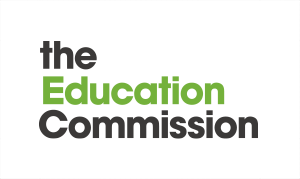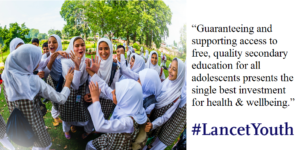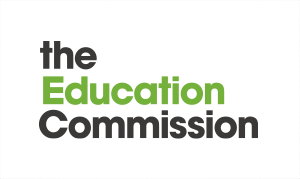 “In 2016, a quarter of a billion children and young people are out of school. Another 330 million are not learning because we fail to invest in them even when they are in school. We cannot accept another year or decade like this. It is time we started telling new stories about our children. Time we offered them not just safety, but a real future – not just freedom from fear, but the freedom to realize their potential through education.” Rt Hon Gordon Brown
“In 2016, a quarter of a billion children and young people are out of school. Another 330 million are not learning because we fail to invest in them even when they are in school. We cannot accept another year or decade like this. It is time we started telling new stories about our children. Time we offered them not just safety, but a real future – not just freedom from fear, but the freedom to realize their potential through education.” Rt Hon Gordon Brown
Read it here
Overview
The International Commission on Financing Global Education Opportunity was set up to reinvigorate the case for investing in education and to chart a pathway for increased investment in order to develop the potential of all of the world’s young people. It brings together the best research and policy analysis to identify the most effective and accountable ways of mobilising and deploying resources to help ensure that all children and young people have the opportunity to participate, learn and gain the skills they need for adulthood and work in the 21st century. Specifically, the Commission created three separate panels of expert advisors, each focused on a critical issue related to education reform: technology, health, and finance.
The Education Commission’s work builds upon the vision agreed to by world leaders in 2015 with the UN Sustainable Development Goal for education: To ensure inclusive and equitable quality education by 2030 and promote lifelong learning opportunities for all.
Taking Urgent Action
Sufficient leadership and investment in education has not been a priority for governments and leaders. Education’s share in government budgets has been declining in a number of countries despite growing needs. With international assistance to education declining by nearly 10 percent in recent years, the financing gap for basic education is unlikely to be closed without urgent action.
If leaders do not take action now to increase investment and reform global education, more than 124 million young people will continue to be denied access to schools and more than 250 million will not gain the skills they need to lead healthy and successful lives.
Over the last year, the Education Commission has sought to persuade global leaders to take urgent action by bringing together the best evidence on what works in expanding access to quality education and learning for all.
The first generation where every child goes to school
Inspired by examples of extraordinary educational advancement around the world, and challenged by the urgent need to continually reshape education to meet the needs of a new generation, the Education Commission articulates a progressive way forward for global education. They show how their vision of a world in which all children and young people are in school and learning is not a dream but an achievable reality already witnessed in some countries. If we transform the performance of education systems, unleash innovation, prioritise inclusion, expand financing, and motivate all countries to accelerate their progress to match the world’s top 25 percent fastest education improvers, we can build the “Learning Generation.”
Next steps
Following the launch of the Education Commission’s report at the United Nations, the Commission’s efforts now shift toward report uptake and holding all actors to account for delivering the #LearningGeneration. During the coming year, the Commission will work to disseminate the Commission report and agenda for action, inspire and motivate reforms in financing and delivery of education and structure partnerships to carry forward the recommendations. During the past month, the Commission’s report findings have been covered in 237 news stories, 16 Commissioner OpEds and disseminated through a launch video generating more than 1.2 million views. You can see some of the coverage here.
Over the coming year, the Commission will focus on five priority areas:
1. Supporting Pioneer Countries
2. Establishing Multilateral Development Bank Investment Mechanism
3. Strengthening Global Accountability
4. Catalysing Strategic Initiatives
5. Spreading the Message
 The goals of the Lancet Commission on adolescent health and wellbeing are consistent with and complementary to those of the Education Commission. The Lancet Commission called for guaranteeing access to free, quality secondary education for all as the single best investment for health and wellbeing. It presented new evidence that participation in secondary education is associated with a range of health benefits for individuals and societies. But it also reviewed evidence suggesting that it is not merely enrolment in secondary education that is critical to achieving health impacts but also: the quality of education provided; the extent to which schools actively engage students in an inclusive community; and the implementation of multi-component school health interventions.
The goals of the Lancet Commission on adolescent health and wellbeing are consistent with and complementary to those of the Education Commission. The Lancet Commission called for guaranteeing access to free, quality secondary education for all as the single best investment for health and wellbeing. It presented new evidence that participation in secondary education is associated with a range of health benefits for individuals and societies. But it also reviewed evidence suggesting that it is not merely enrolment in secondary education that is critical to achieving health impacts but also: the quality of education provided; the extent to which schools actively engage students in an inclusive community; and the implementation of multi-component school health interventions.
By Prof Chris Bonell
#LancetYouth Commisisoner
Professor of Public Health Sociology
Head of Department of Social & Environmental Health Research, LSHTM
